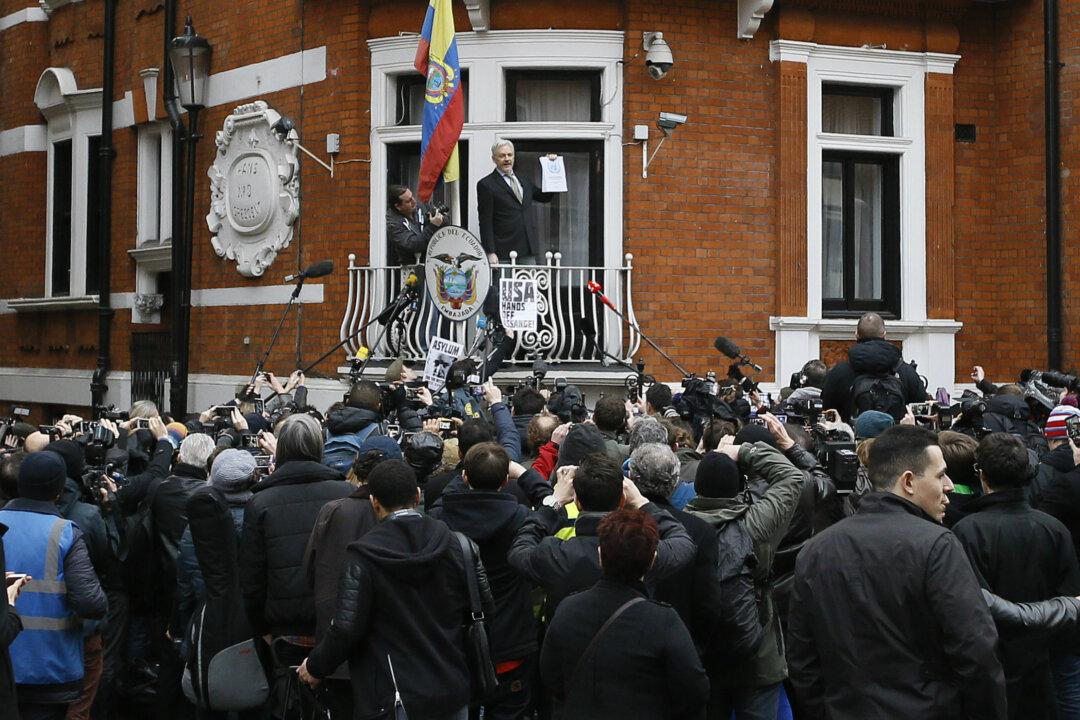LONDON—It started more than five years ago as what appeared to be a fairly simple sex crime case: two women in Sweden came forward to accuse Julian Assange of sexual misconduct.
Now the case has mutated into a complicated international drama involving Britain, Sweden, the United States, Ecuador, a host of human rights lawyers and the United Nations.
But when the dust settles from an unexpected U.N. working group’s finding Friday that Assange has been unlawfully detained, the painful stalemate is expected to continue, and Assange—though claiming full vindication—will most likely remain cooped up in the Ecuadorean Embassy in London.
The panel said his stay at the embassy—which he entered voluntarily in 2012—constitutes arbitrary detention and that he should be set free and compensated for lost time.






